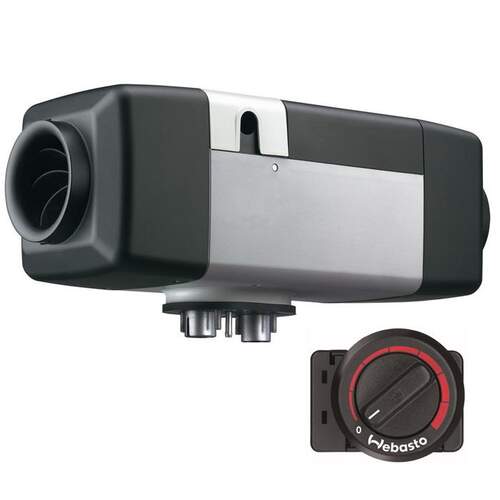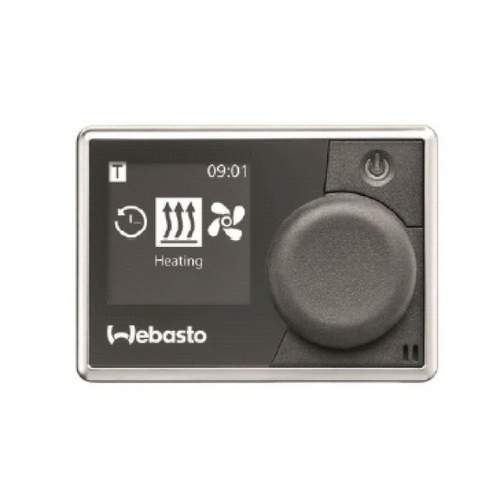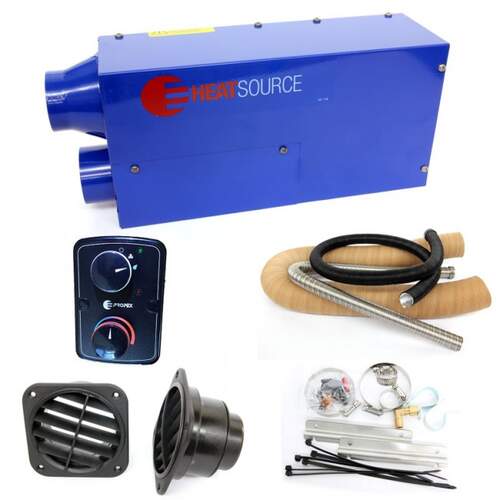All About Diesel Heaters For Your RV
Date Posted: 1 May 2019

Cooler weather shouldn’t stop you from travelling in your motorhome. New Zealand offers so many beautiful places that look their best under a layer of snow. In order to make your journey more enjoyable in these conditions you will want to make sure that you’ll be cosy and warm enough in your RV. Unless you’re happy with the idea of spending your days wrapped up in blankets, whatever level of insulation is offered by the walls of you RV, you will probably have to think about a heating system for your motorhome.
WHAT ARE AIR HEATERS & HOW DO THEY WORK?
Air for the heater's internal combustion process is drawn from an external intake pipe (usually through the floor) and passed into the heater's combustion chamber. It’s mixed with fuel (diesel or LPG) and automatically ignited to heat up the large surface area of a heat-exchanger. The combustion exhaust air is kept totally separate from the inside cabin air and blown back outside through an exhaust pipe. The heater’s internal blower motor draws cool cabin air past the heat exchanger where it’s heated and then blown back into the cabin again.
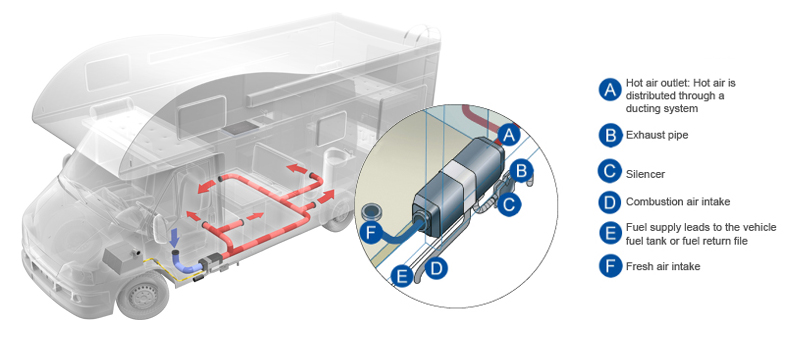
WHY DO WE RECOMMEND DIESEL HEATERS?
As most RVs use LPG to power cooking and water heating appliances and use diesel to run their engine, it gives you two fuel options to power an air heater. Lately, diesel air heaters have become our favourite option. Here is the breakdown why.
A - Regulations and Safety
Both diesel and LPG fuels are widely used and considered safe. Both diesel and LPG heaters auto-shutdown when system temperature exceeds design spec. The obvious advantage of diesel over LPG are combustion and inhalation risks. A leaking LPG fuel line can result in explosion, permanent respiratory and nervous system damage and even death. Although these risks can be minimised through annual LPG system inspections and gas detectors, these risks can never be eliminated. A diesel system does not present these risks. As diesel is relativity hard to ignite, diesel heaters can also be used while driving. This is a strong influencer for many in making a fuel source decision for their new cabin heater. There are many regulations in place towards the installation of gas appliances. The gas heater flue cannot be installed too close to a window, door, other gas appliance inlet or outlet, or under an enclosed annexe. These regulations will sometimes rule out the possibility of installing a gas heater, in which case a diesel heater would be the way to go.
B - Superior Heating Performance
If the temperature drops under 2 degrees, the butane part of your liquid gas mix (60% butane – 40%) propane will not vaporise well. Your heater will only burn Propane and you won’t be able to heat your RV once you’re left with only with Butane in your gas bottle. If you plan to take a tour in your RV in freezing cold conditions, we strongly suggest you opt for a diesel heater. Diesel heaters produce a clean dry heat, whereas LPG systems can produce a 'wet heat' creating unwanted humidity and condensation.
C - Better Temperature Control & Quieter Operation
Current LPG heaters run a single speed fan turning on and off as required by the thermostat. Because of this, LPG heaters struggle to maintain a constant temperature. The latest diesel heaters use microprocessors to control combustion and airflow (variable fan speed) and can maintain a constant room temperature.
D - Conclusion
Though diesel heaters are a significant investment and are most expensive to buy than LPG heaters, they are cheaper in the long run. In return for your investment, you will have extended use of your recreational vehicle all year round in absolute comfort, convenience and safety.
Using diesel fuel to heat the RV is a good way to save LPG for your fridge and to maximise your ability to freedom camp in remote locations without the need to refill gas cylinders.
HOW TO CHOOSE YOUR DIESEL HEATER?
When helping you choose your new heater they will probably ask you the below questions. The answers to these questions will help you determine your need for a more or less powerful heater (2KW or 4KW) as well as to pick the right installation kit.
A - Usage related questions:
- Do you intend to spend a lot of time in cold locations? If you plan to stay in snowy locations, a more powerful heater is recommended.
- What is the size of your motorhome? Most of our RVs are equipped with 2KW heaters. If your RV is closer to bus-size, a 4KW heater will heat up your space quicker
- Does your motorhome have many large windows? a lot of energy is lost through window glass. The more windows you have the larger the heat loss.
- Would you like to heat up several areas of you vehicle at the same time? Depending on the number of rooms you want to heat up at the same time, you'll have the option to choose a heater with 1, 2 or 3 outlets.
B - Technical constraints:
- What brand and model is you RV? Installation kits are specific to each model of RV.
- What duct size does your current heating system use? We suggest you use the same duct size in order to cut down the installation cost.
Our knowledgeable staff are always available to help you pick the right products for your needs.
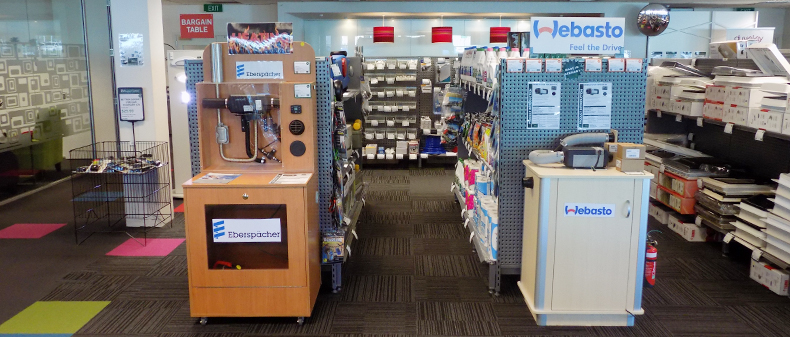
RV DIESEL HEATER INSTALLATION
Whatever fuel option you decide to go with, we recommend you use the services of a professional installer. The amount of work required to fit a heater on an RV can vary a lot.
Installing an LPG heater will require a certified technician to connect the LPG connections and certify the gas installation design layout. An LPG heater will also require an annual inspection for compliance.
Diesel heaters can be installed on vehicles powered by a petrol engine. In that case, an additional external tank will have to be installed to carry the diesel fuel.
Call our Service Centre to discuss your options and requirements, they are here to help you get the most out of your motorhome.
Check our wide range of diesel heaters.

